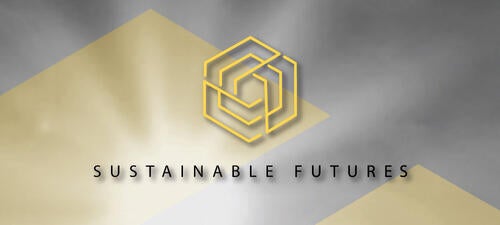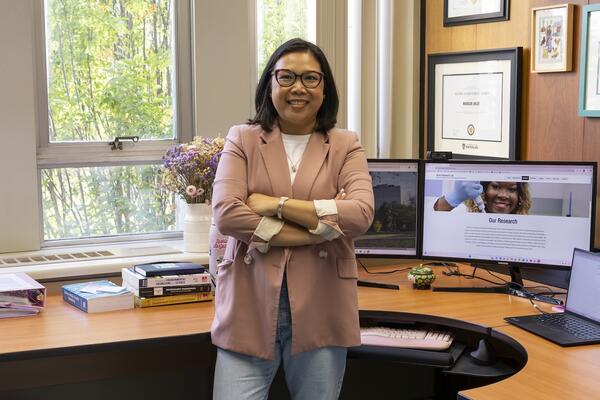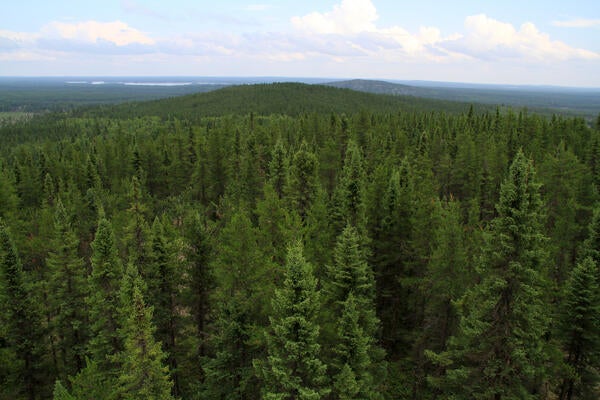
Shaping a sustainable future
For the benefit of the environment, economy and society

For the benefit of the environment, economy and society
By Office of ResearchA new University of Waterloo initiative aims to shape the future of sustainability for the benefit of the environment, economy and society.
The Sustainable Futures Initiative is a collaboration that brings together the Waterloo Climate Institute, the Waterloo Institute for Sustainable Energy and the Water Institute to accelerate holistic approaches to advance the United Nations Sustainable Development Goals (SDGs) with a focus on the interconnections between energy, climate and water.
The Initiative aligns strongly with the Futures Framework under Waterloo at 100, a visioning exercise underway to address Waterloo’s aspirations by its 100th anniversary in 2057. The Futures Framework helps coordinate the University’s efforts in education, research and innovation as it strives to address global challenges. The Sustainable Futures Initiative is, therefore, a leading example given its emphasis on collaboration enabling greater impact.
“The future of Waterloo’s commitment to sustainability and achieving net-zero begins with events like this one today, where those at the top of their fields share ideas beyond academic boundaries,” said Vivek Goel, President and Vice-Chancellor of the University of Waterloo. “We will continue to uncover innovative ways to meet and exceed our commitments moving forward. There is not one clear solution to the climate crisis, but it is apparent that it is critical we work together and mobilize around our collective vision for a sustainable future.”
The three institutes have a strong history of collaboration, and an enriched partnership within the Sustainable Futures Initiative allows for increased impact of research and the ability to pursue a more comprehensive approach to achieving the SDGs in Canada. With strength in both interdisciplinary and transdisciplinary research and expertise, the Sustainable Futures initiative is uniquely positioned to further Waterloo’s strong reputation for leadership in sustainability.

More than 100 of Waterloo’s key collaborators, including government, industry partners, community organizations, researchers and students celebrated the launch of the Sustainable Futures initiative today.
The launch included a keynote address from Catherine Abreu, executive director of Destination Zero, an internationally recognized and award-winning campaigner whose work centers on building powerful coalitions to advance action on climate change. Catherine was appointed as one of 14 advisors to Canada’s Net-Zero Advisory Body in early 2021, a legally mandated, arms-length expert group tasked with providing advice to government on pathways to meet its climate commitments.
“Advancing sustainable futures for the world is a complex problem that links climate, water and energy alongside societal needs and inequities, and is driven by global challenges such as extreme weather events, food insecurity and poverty and endangered ecosystems,” said Charmaine B. Dean, Vice-President, Research and International. “The Sustainable Futures initiative is a unique approach that draws upon Waterloo’s expertise in interdisciplinary research to provide innovative solutions to address these challenges for a better world.”

The photo shows a European bat species affected by White-nose Syndrome.
Read more
Study highlights the biological mechanisms behind a disease that has caused over 90 per cent declines in some bat species

Read more
Waterloo prof leads a team of researchers to improve water quality through a community-focused approach underpinned by technical excellence

New research examines the carbon-removal potential of strategic planting (Getty Images/Zhao Qin).
Read more
AI-powered modelling shows planting in northern forests could help Canada become carbon neutral by mid-century
The University of Waterloo acknowledges that much of our work takes place on the traditional territory of the Neutral, Anishinaabeg, and Haudenosaunee peoples. Our main campus is situated on the Haldimand Tract, the land granted to the Six Nations that includes six miles on each side of the Grand River. Our active work toward reconciliation takes place across our campuses through research, learning, teaching, and community building, and is co-ordinated within the Office of Indigenous Relations.